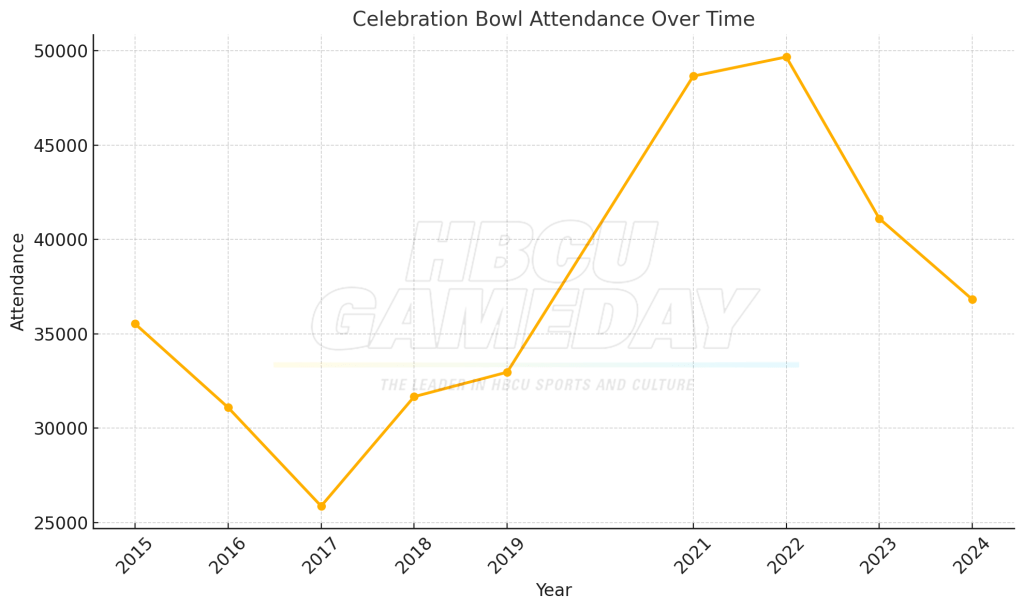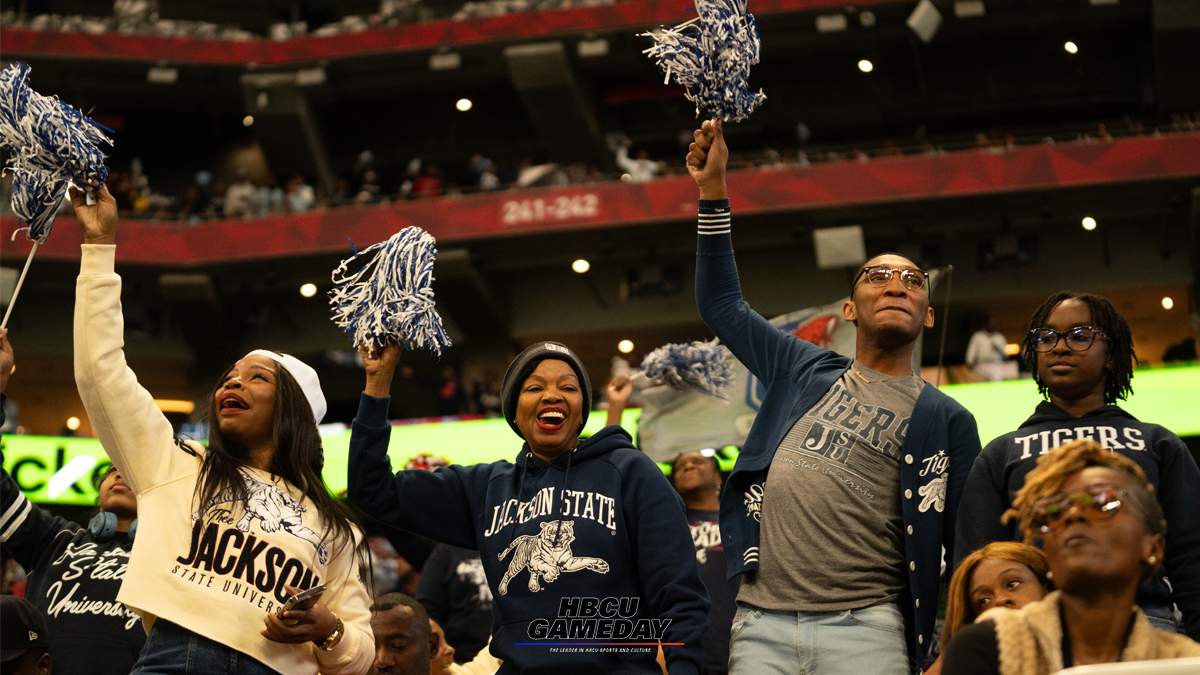The 2024 Celebration Bowl drew 36,823 fans to Mercedes-Benz Stadium in Atlanta, as Jackson State defeated South Carolina State 28-7 to claim the HBCU national title. This game, which highlights the champions of the MEAC (Mid-Eastern Athletic Conference) and SWAC (Southwestern Athletic Conference), continues to be a premier event showcasing the best of HBCU football. Attendance figures for the Celebration Bowl have been a strong indicator of the growing popularity of HBCU athletics, but trends have also reflected the challenges and triumphs of sustaining consistent fan engagement.
The Celebration Bowl debuted in 2015 with a solid 35,528 fans in attendance as North Carolina A&T beat Alcorn State. This established a strong foundation for the annual game, which grew in stature as more teams with national fanbases competed. However, attendance dipped slightly in 2016 to 31,096 (North Carolina Central vs. Grambling State) and further declined to 25,873 in 2017 as NC A&T faced off against Grambling State. Analysts attributed the drop to the transition from the Georgia Dome to the newly opened Mercedes-Benz Stadium, where higher ticket prices and changes in logistics affected turnout.
The 2018 game featuring NC A&T and Alcorn State saw attendance rebound to 31,672 and continued to climb to 32,968 in 2019. The 2020 game was canceled due to the COVID-19 pandemic, but the Celebration Bowl returned in 2021 with a record-breaking 48,653 fans. This surge was largely fueled by Jackson State’s participation, led by the high-profile leadership of head coach Deion Sanders, whose impact on HBCU football helped draw fans and media attention.

The peak came in 2022, when 49,670 fans witnessed North Carolina Central’s thrilling overtime victory over Jackson State. That year marked the highest attendance in Celebration Bowl history, cementing the game’s place as a marquee event in HBCU athletics. In 2023, the trend shifted slightly downward as 41,108 fans attended Florida A&M’s (FAMU) 30-26 win over Howard University. While this was a decline from the record-setting 2022 figure, it still represented robust interest, especially considering the high stakes as FAMU claimed its first HBCU national title since the bowl’s inception.

The 2024 Celebration Bowl attendance of 36,823, while lower than the previous three years, reflected strong support for Jackson State and South Carolina State. Jackson State’s return to the game, after missing it in 2023, brought excitement but the game was also just one week after the SWAC Championship Game.
Analyzing the trends, it’s evident that matchups and storylines significantly impact attendance figures. High-profile programs like Jackson State and FAMU bring established fanbases that boost turnout. Media coverage, player star power, and the promotional efforts by both the Celebration Bowl and HBCU conferences also play vital roles. While the 2024 game did not break records, it continued to showcase the enduring popularity and cultural importance of HBCU football. Saturday’s game was the fourth lowest attended in the game’s history, but still larger than any of the first five games.
